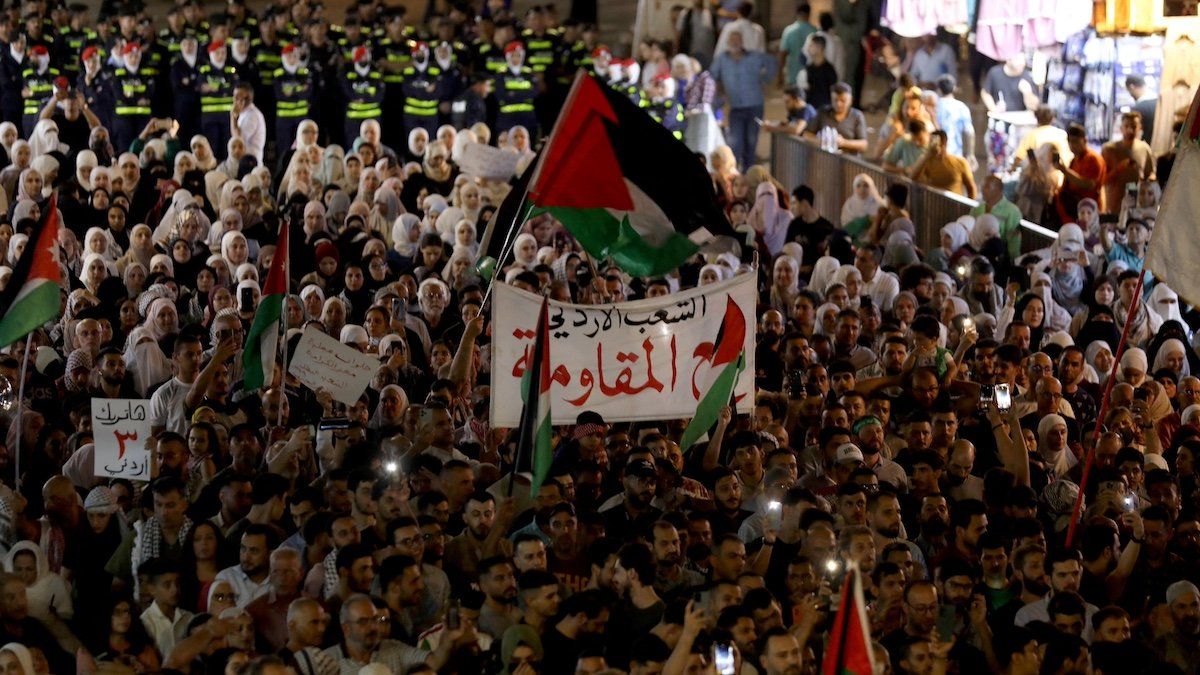Demonstrators take part in a march in support of Palestinians in Gaza and to salute the slain Jordanian who shot and killed three Israeli civilians, according to the Israeli authorities, at the Allenby Bridge border crossing in the occupied West Bank, in Amman, Jordan September 8, 2024.
A Jordanian gunman on Sundaykilled three Israeli guards at the Allenby Bridge, the border crossing between the West Bank and Jordan. The shooter, 39-year-old Maher Ziab Hussein al-Jazi, was shot dead by security forces. The attack was the first of its kind since the Hamas attacks of Oct. 7.
Jordan’s government is investigating the incident, while Israeli Prime Minister Benjamin Netanyahusaid it was a “hard day” and sent condolences to the victims’ families. Hamashas not claimed responsibility for the attack, but called it a “natural response” to the war in Gaza.
In the Jordanian capital of Amman,hundreds of people took to the streets to celebrate the attack. Israeli authorities closed the crossing after the incident but plan to reopen it on Monday. A permanent closure would cause economic hardship on both sides of the border, as dozens of trailers cross daily from Jordan supplying goods to both the occupied West Bank and Israeli markets.
Fears of escalation have largely focused on Lebanon until now. Kuwaiti newspaper Al-Jarida reported on Sunday thatUS officials have proposed a land swap between Lebanon and Israel to end border conflicts and resolve ongoing disputes. The plan would recognize “Point B1,” the westernmost border point of the “Blue Line,” as part of Lebanon, patrolled by UN forces. It would also preserve the territorial integrity of Kibbutz Misgav Am in Israel in exchange for a land swap equal to twice its size of the kibbutz.
We’re watching to see if there is any official confirmation of the proposal – and whether it has a chance of succeeding.
